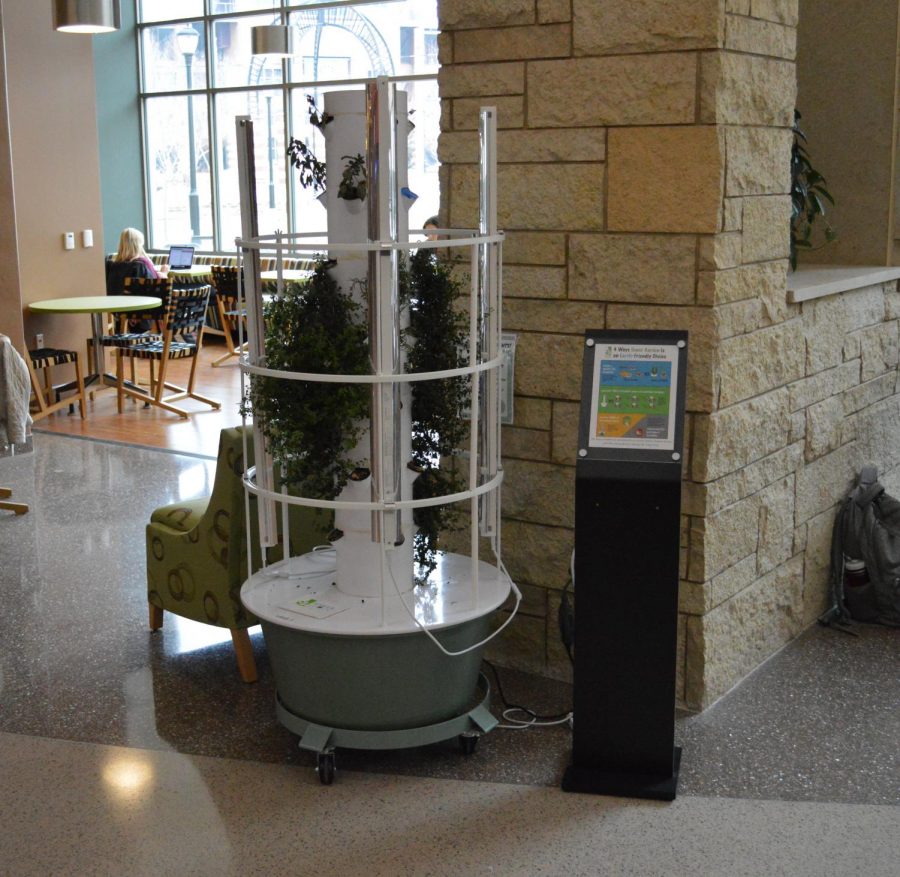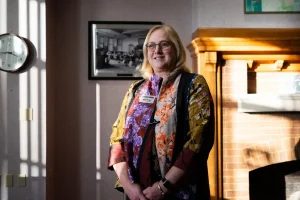Dining Services Work To Benefit The World Around Us
March 27, 2018
Over the years, the University of Wisconsin’s dining centers have taken action to become more environmentally friendly and ‘green.’ Some major steps taken include the transferring over to vermicomposting, the installation of efficient machinery, the use of tower gardens, participation in a food recovery network and the push for more care with to-go containers and dishes.
In partnership with Hillview Union Agriculture Center and Mayo Clinic, Whitney’s food waste has been taking part in vermicomposting. Vermicomposting is, according to an article by BioEnergy Consult, “a type of composting in which certain species of earthworms are used to enhance the process of organic waste conversion and produce a better end-product. It is a mesophilic process utilizing microorganisms and earthworms.”
Vermicomposting has been taking place on campus since January 2011, replacing the “smelly,” according to Associate Director of University Centers Mary Beth Vahala, composting at the plant. Vahala mentioned that a university geography professor took charge to write a grant proposal that enabled the school to get a Greenfund Grant to create the vermicomposting system.
Christy Ihrke, marketing manager at University Centers, noted, “A lot of the times we focus on big projects, along with everyday projects, too. For example, here in the Student Union, we are encouraging students to not take to-go containers if they are eating in the main dining area—even just little changes like that.
“Over at Whitney, we encourage students to not take any of the silverware, plates or glasses outside of the dining hall, because a lot of the time they don’t get brought back and then they get thrown away, which produces waste and then we just need to order more. There are a lot of changes we are looking at, just changing everyday behavior patterns and kind of working through different products like that.
“Whenever we implement any programs over there, we really try to stick with [the] reduce, reuse, recycle mentality. We do have reusable to-go containers over in the main dining area that we encourage people to use.
“We’re also, behind the scenes, always working to make sure the processes we use in the kitchen produce the least amount of waste possible, so that those processes are efficient as well. That also goes for the equipment too. We just recently installed a new high-efficiency low water usage dishwasher.”
Six tower gardens, five of which are in circulation, with the sixth acting as a home for new plants, are among the many environment-friendly features of The Union. They are located near dining locations and in The Cove. According to Vahala, the one in the Cove is used for “the food pantry, so students can get fresh lettuce and that kind of stuff there.”
Vahala continued, “We harvest basil, oregano, thyme, arugula, Swiss chard, assorted lettuces and hot peppers. The lettuces are getting used in the salad bar in the to-go area there. During the summer, we used it when we do the patio days, like on the sandwiches we have out there.
“When we had Mondo’s over here for the summer, it was used on the sandwiches there. It’s used for catering, with the herbs used as garnishes. Whenever [dining staff] make the herb butter, they use the fresh herbs. They having making fresh pesto with it and pasta salads.”
The dining service is able to take pride in its food recovery network program, which led to the donation of over 4,000 pounds of food last year to the Hunger Task Force. The food donated is then distributed to over 90 different organizations, according to Ihrke, in the immediate area.
Ihrke explained the process of the program, “We package up food that has been produced over at Whitney that is still usable, nothing that has been sitting out, and we freeze it, and we take it to the Hunger Task Force.”
Dining services are always looking for innovative new ideas and opinions on current projects. Vahala noted that the university is currently looking at the possibility of a green restaurant on campus, but at the moment really requires students’ thoughts to see if it would be a useful destination on campus.
Ihrke concluded, “We are always looking for new opportunities and new ways to be greener.”






